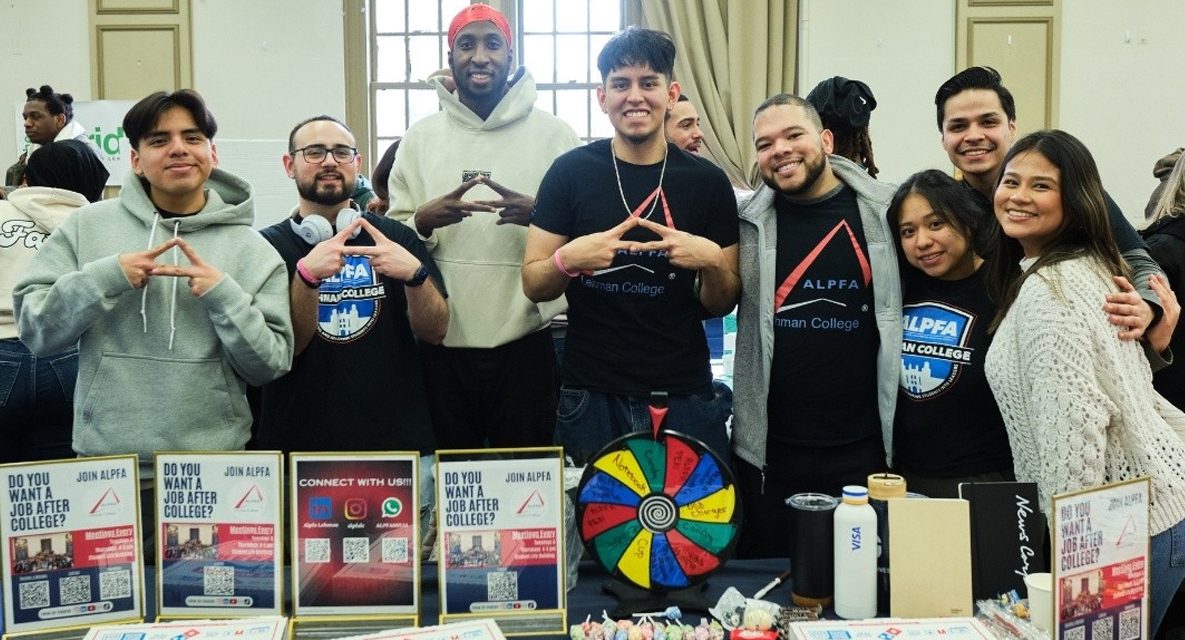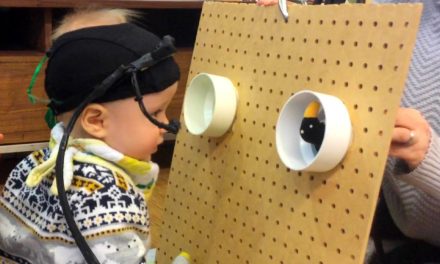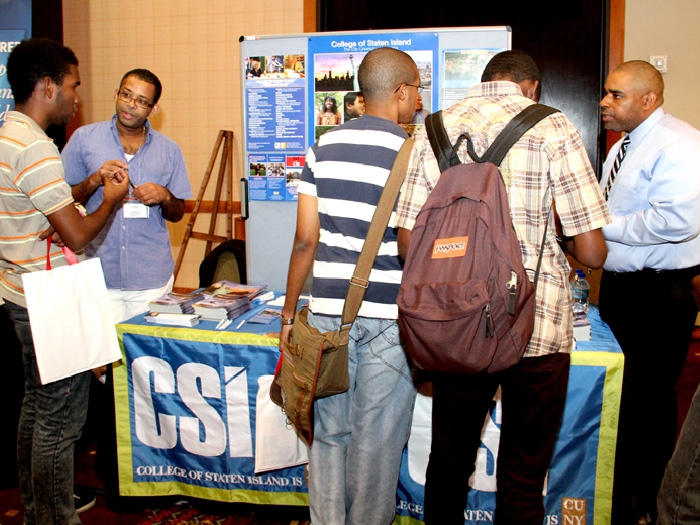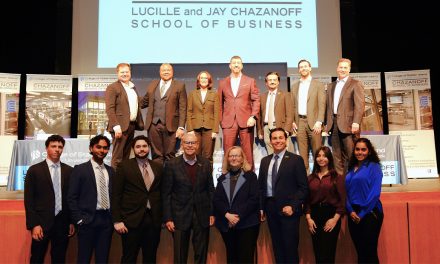Efforts Include New Programs in AI & Education, Immigration Assistance, Easy Transfer Between Colleges and Renewed Focus on Student Life; First Year for Students Benefitting from Governor Hochul’s Free Community College Program
The City University of New York today kicked off its 2025-26 academic year, welcoming about 240,000 students with new initiatives and offerings geared to better meet their needs. These include academic programs in AI and education; a revamped transfer process that is enabling thousands of students for the first time to fully transfer their major credits between CUNY colleges; and the establishment of the University’s 26th constituent college.
Additional services for students include a new rapid response legal resource for those impacted by immigration policy changes, new dorm beds, better Wi-Fi access and new ways to spotlight and support CUNY’s about 1,000 student clubs and organizations, athletics and club sports programs and facilities.
“Each fall, the first day of classes brings a renewed sense of purpose to CUNY,” said CUNY Chancellor Félix V. Matos Rodríguez, who is beginning his seventh academic year leading the nation’s largest urban public university. “This year is especially exciting as we launch several new initiatives meant to enrich student experience both in and out of the classroom. There has never been a better time to be a member of the CUNY community.”
The University’s back-to-school season isn’t just for college-age students — it’s for older adults too. Applications are open for Governor Kathy Hochul’s free community college initiative, which covers tuition, books, fees and supplies for adult New Yorkers ages 25-55 who enroll in one of over 120 high-demand programs.
New Academic Offerings
Academic programs being launched in 2025-26 include degrees and programs that will prepare students to thrive in the fast-growing field of AI and also education.
As part of its commitment to preparing students for career success, the University has launched CUNY AI for Everyone (AI-One), a new initiative to give students across all majors the opportunity to build AI fluency and the skills they will need as they enter the workforce. The initiative combines free and low-cost courses, in-person workshops and industry-aligned certifications to help students prepare for jobs in every sector — whether they’re studying computer science, journalism, public health or business. One offering is a free series of in-person sessions in partnership with the New York Jobs CEO Council to build AI-driven projects.
A new Master of Science in generative AI at CUNY’s School of Professional Studies (SPS) is one of the first fully online programs of its kind, and a Bachelor of Science in data science and AI at Lehman College blends programming, statistics, AI and analytics with hands-on experience in multiple specialization tracks.
Medgar Evers College is introducing CUNY’s first fully online education degree, a Bachelor of Arts in childhood education; Baruch College is unveiling its first doctoral program, an Ed.D. in higher education administration; and CUNY’s Graduate Center is offering advanced certificates in environmental justice and climate resilience and nanoscience connected to life.
New School
The new academic year marks the first with the CUNY School of Medicine as an independent medical school, adding a 26th constituent school to the University system. The transformation of the school, built on the 50-year legacy of the Sophie Davis School of Biomedical Education at The City College of New York, advances its dual mandate to produce diverse medical professionals and provide high-quality health services to underserved communities addressing health care disparities, especially in primary care, across New York City.
Rapid Response Immigration Assistance
CUNY has also launched a new rapid response free legal resource to help members of the university community cope with rapidly changing immigration policies. Generously funded by the Carroll and Milton Petrie Foundation, the CUNY Immigration Assistance Project (CIAP) is available to all current CUNY students and employees. CIAP provides consultations with an attorney if a CUNY community member is detained, having complications with an F-1 student visa, or needs advisement ahead of immigration court hearings, USCIS interviews, travel or changes in legal status.
Transfer Made Seamless
A major revamp of the University’s transfer process has created consistency across the system, may reduce the time needed to complete a degree, and could save an average of up to $1,220 in duplicated credits for bachelor’s transfer students. The CUNY Transfer Explorer (T-Rex), a comprehensive portal that shows students how credits transfer across the University, has been a popular resource for transfer students of all types, including students transferring between CUNY colleges, students joining the University from other colleges and high school students taking dual enrollment courses through CUNY College Now. Last academic year, more than 190,000 people visited the T-Rex portal, including 81,000 from CUNY.
For this academic year, Universal Transfer Pathways (UTPs) have already been established for eight majors. UTPs comprise courses common to associate and bachelor’s degrees that transfer in the major across the University. Students who have transferred from a CUNY associate degree program to a bachelor’s degree program in the same discipline will have their UTP courses transferred directly. Already, because of the reform, 97% of biology UTP courses transfer from associate to baccalaureate programs, up 10% since last year; 83% of accounting UTP courses, up 7%; and 98% of math UTP courses, up 5%.
More than 32,000 students transferred into a CUNY college last year, an increase of 6% from the previous year. This upward trend is expected to continue into the 2025-26 school year.
Finding Community in a Commuter System
CUNY students have ample opportunities for participation and enrichment that transcend the classroom yet complement the academic experience.
Students can join more than 1,100 clubs and organizations across the system, pursuing endeavors related to their courses and careers as well as their hobbies and civic interests. CUNY today introduced a comprehensive student organizations guide to help guide students who want to explore the many options available to them.
One incoming student planning to take full advantage of campus life is Lamis Fawaz, who is beginning her studies in aviation management at York College this fall. She hopes to reactivate the college’s chapter of Women in Aviation International as well as get involved in York’s Student Government Association.
“I’m excited because I got a taste of the CUNY experience when I took a college course at York last summer,” said Fawaz, who aspires to be an airline pilot. “Honestly, I loved it.”
Student-athletes and others who want to stay active have access to a wide array of athletic offerings and facilities across varsity teams in the CUNY Athletic Conference, adaptive sports for students with disabilities and casual sports clubs including the popular esports organizations. CUNY’s state-of-the-art athletics facilities available to students include fitness centers, modern gyms, pools and indoor courts. The diverse offerings are now listed on new CUNY Athletics and CUNY Adaptive & Inclusive Sports pages. The University also offers an integrated system of 31 libraries across the five boroughs; students enrolled at any CUNY college can access all of the system’s locations.
CUNY is also expanding housing options with 578 new dorm beds at FOUND Study Midtown East located at 569 Lexington Avenue. The expansion includes a new CUNY Housing Access Pilot to provide stable housing for CUNY students who meet specific eligibility criteria including financial aid, enrollment and residency status and academic standing.
CUNY is continuing to ensure that every student and employee’s preferred name becomes the primary name displayed across all centrally managed information systems. This recent systemwide enhancement will extend to diplomas this academic year as students across the system will now have the ability to specify their preferred diploma name.
And the Campus Network Modernization Project, an effort to improve Wi-Fi and other digital information networks across the University, has been completed on nine of 16 campuses which required network upgrades, with those remaining to be completed this year.
College is Not Just for Recent High School Grads
Governor Hochul’s free community college initiative waives the cost of tuition, books, fees and supplies for adults ages 25 to 55 who are pursuing associate degrees in high-demand fields including advanced manufacturing, artificial intelligence, cybersecurity, engineering, technology, nursing and allied health fields, green and renewable energy, and pathways to teaching in shortage areas. More than 6,000 New Yorkers have applied to CUNY under the program, underscoring the demand for affordable higher education. CUNY’s seven community colleges are part of the program, with over 120 programs eligible.
“By focusing on fast-growing fields, the program directly links us, the students, to careers where employers are originally hiring,” said Rebecca Ramos, 38, an immigrant from Venezuela and mom of a 3-year-old girl who enrolled through Reconnect to study nursing at LaGuardia Community College. “This initiative is not just about individual opportunities. It’s about empowering New York adults — people like me — to pursue meaningful, well-paying careers, and to build a strong and more resilient state.”
The Governor’s free community college initiative is being promoted to prospective students under the CUNY Reconnect umbrella, which also includes a City Council-funded program to re-engage adults who started college but did not earn a degree. This effort, spearheaded by City Council Speaker Adrienne Adams has helped 11,000 earn their degrees since 2022.
Classes begin at 22 CUNY colleges today. The year kicked off at CUNY Law on Aug. 19, while three community colleges — Guttman, Kingsborough and LaGuardia — start on Sept. 9.
– Story courtesy CUNY Media Relations

















